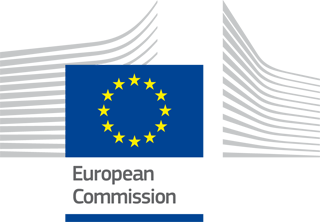

News
Second workshop to prepare the National Action Plan for CBRN Risk Mitigation in Seychelles
The EU and UN supporting the Republic of the Seychelles
Victoria, 10 June 2016.


Funded by the European Union
The second workshop for the preparation of Seychelles’ National Action Plan (NAP) to mitigate Chemical, Biological, Radiological and Nuclear (CBRN) risks took place on 8-10 June 2016 in Victoria, Seychelles. The three-day workshop involving the Seychelles National CBRN Team was organized within the framework of the European Union (EU) Chemical, Biological, Radiological and Nuclear (CBRN) Centres of Excellence (CoE) Risk Mitigation Initiative.
The workshop was opened by the Director of Protocol, Treaties and Consular Affairs in the Ministry of Foreign Affairs and Transport, who also acts as the National Focal Point for the CBRN CoE Initiative, and by the CBRN CoE Regional Coordinator for Eastern and Central Africa.
The workshop was the second of a series of national workshops aimed at incorporating the Seychelles’ national vision for risk mitigation into a National CBRN Action Plan and at identifying priorities for building capacity. The NAP ensures integration of efforts in one coherent approach, thus strengthening national capacities for prevention, detection, preparedness and response to CBRN threats. It also facilitates the identification and implementation of projects and ensures that capacity building is part of a coordinated and sustainable approach.
The workshop aimed at reviewing CBRN risks, capabilities, gaps and actions for capacity-building, and focused on priority actions.
Among the participants of the workshop were representatives from the Attorney General’s Office; the Ministry of Agriculture; the Department of Risk and Disaster Management (DRDM), Ministry of Environment, Energy and Climate Change; the Ministry of Foreign Affairs and Transport; the Ministry of Health; the Public Health Authority (PHA); the Public Health Laboratory; the Public Utilities Corporation; the Seychelles Bureau of Standards; the Seychelles People Defence Forces; the Seychelles Port Authority; the Seychelles Postal Services; and the Seychelles Revenue Commission (Customs Division). The meeting was also attended by experts from the European Commission Joint Research Centre (JRC) and UNICRI, who facilitated the work of the Seychelles National CBRN Team.
The EU CBRN CoE Risk Mitigation Initiative involves 53 countries in 8 regions of the world, is funded by the European Union and is jointly implemented by the United Nations Interregional Crime and Justice Research Institute (UNICRI) and the European Commission Joint Research Centre (JRC). The initiative has been developed with the technical support of relevant international and regional organizations, the EU Member States and other stakeholders, through coherent and effective cooperation at the national, regional and international level. The EU CBRN CoE Risk Mitigation Initiative aims at strengthening regional security and safety by sharing good practices and capabilities, by developing guidelines, by identifying and deploying resources to respond to the needs identified by partner countries and by supporting the development of national CBRN policies.
For more information:
CBRN Centres of Excellence website:
http://www.cbrn-coe.eu/
European Commission, Instrument contributing to Stability and Peace website (see section about "Stable Situations"):
http://ec.europa.eu/europeaid/node/7350


Victoria, 10 June 2016.


Funded by the European Union
The second workshop for the preparation of Seychelles’ National Action Plan (NAP) to mitigate Chemical, Biological, Radiological and Nuclear (CBRN) risks took place on 8-10 June 2016 in Victoria, Seychelles. The three-day workshop involving the Seychelles National CBRN Team was organized within the framework of the European Union (EU) Chemical, Biological, Radiological and Nuclear (CBRN) Centres of Excellence (CoE) Risk Mitigation Initiative.
The workshop was opened by the Director of Protocol, Treaties and Consular Affairs in the Ministry of Foreign Affairs and Transport, who also acts as the National Focal Point for the CBRN CoE Initiative, and by the CBRN CoE Regional Coordinator for Eastern and Central Africa.
The workshop was the second of a series of national workshops aimed at incorporating the Seychelles’ national vision for risk mitigation into a National CBRN Action Plan and at identifying priorities for building capacity. The NAP ensures integration of efforts in one coherent approach, thus strengthening national capacities for prevention, detection, preparedness and response to CBRN threats. It also facilitates the identification and implementation of projects and ensures that capacity building is part of a coordinated and sustainable approach.
The workshop aimed at reviewing CBRN risks, capabilities, gaps and actions for capacity-building, and focused on priority actions.
Among the participants of the workshop were representatives from the Attorney General’s Office; the Ministry of Agriculture; the Department of Risk and Disaster Management (DRDM), Ministry of Environment, Energy and Climate Change; the Ministry of Foreign Affairs and Transport; the Ministry of Health; the Public Health Authority (PHA); the Public Health Laboratory; the Public Utilities Corporation; the Seychelles Bureau of Standards; the Seychelles People Defence Forces; the Seychelles Port Authority; the Seychelles Postal Services; and the Seychelles Revenue Commission (Customs Division). The meeting was also attended by experts from the European Commission Joint Research Centre (JRC) and UNICRI, who facilitated the work of the Seychelles National CBRN Team.
The EU CBRN CoE Risk Mitigation Initiative involves 53 countries in 8 regions of the world, is funded by the European Union and is jointly implemented by the United Nations Interregional Crime and Justice Research Institute (UNICRI) and the European Commission Joint Research Centre (JRC). The initiative has been developed with the technical support of relevant international and regional organizations, the EU Member States and other stakeholders, through coherent and effective cooperation at the national, regional and international level. The EU CBRN CoE Risk Mitigation Initiative aims at strengthening regional security and safety by sharing good practices and capabilities, by developing guidelines, by identifying and deploying resources to respond to the needs identified by partner countries and by supporting the development of national CBRN policies.
For more information:
CBRN Centres of Excellence website:
http://www.cbrn-coe.eu/
European Commission, Instrument contributing to Stability and Peace website (see section about "Stable Situations"):
http://ec.europa.eu/europeaid/node/7350





